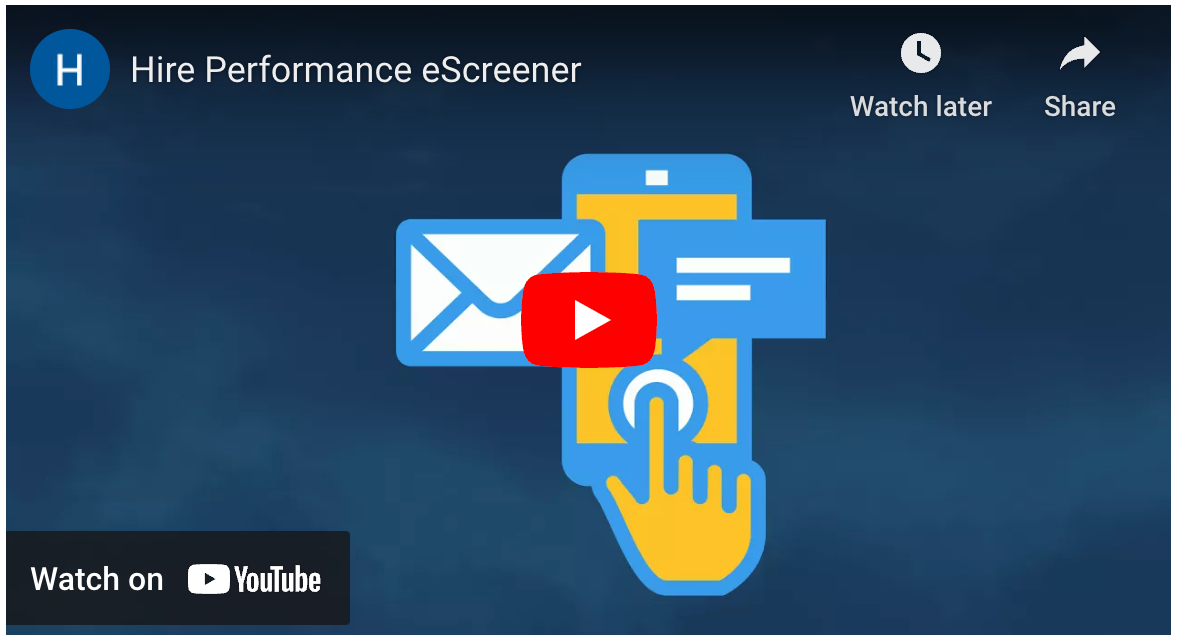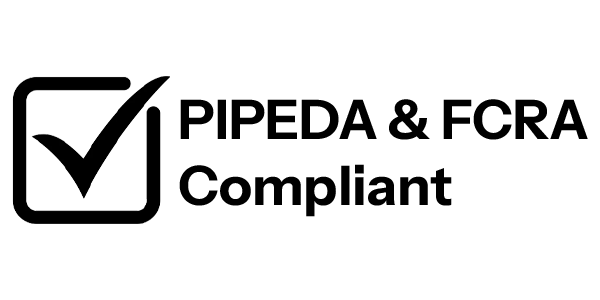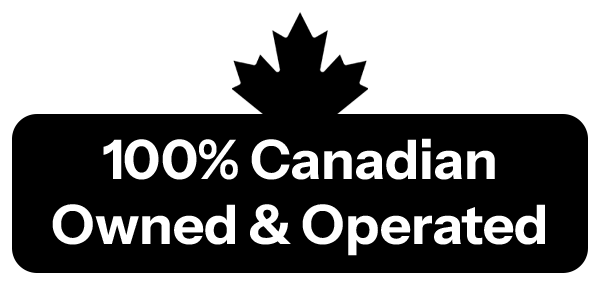What You Need to Know About Background Checks in the US vs. Canada
Alexis Hill • September 25, 2025
Canada and the U.S. both allow employers to screen candidates, but the methods and criteria differ significantly.
Canada relies on national systems (CPIC) and province-level rules for vulnerable and enhanced checks. Meanwhile, in the U.S., criminal history checks involve county-level courts and SSN traces, and federal law (the FCRA) imposes strict consent and notice requirements.
If you hire cross-border or remote workers, you may need to check in both countries. Hire Performance streamlines business screening, making it fast and paperless with no minimums, easy
eScreener ordering, and identity verification that ensures compliance.
Hiring is high stakes. A single bad hire can expose your business to risk, liability, or reputational damage.
Background checks serve as a safeguard, but only if you understand how the process varies across borders and industries.
Keep reading to learn everything you need to know about Canada background checks vs. the U.S.
5 Key Takeaways
- Different Systems, Different Rules:
Canada uses centralized checks through the RCMP’s CPIC system, while the U.S. relies on decentralized county, state, and federal records—making process and coverage very different.
- Legal Compliance Varies Widely:
Canada’s checks must follow federal and provincial rules, while in the U.S., the Fair Credit Reporting Act (FCRA) imposes strict consent, disclosure, and dispute resolution steps, with states adding extra restrictions.
- Cross-Border Hiring Requires Double Screening:
Employers hiring across Canada and the U.S. often need checks in both countries, and must carefully handle privacy, data residency, and consent forms to avoid legal issues.
- Common Employer Pitfalls:
Using the wrong consent forms, ignoring Quebec’s language laws, relying on U.S. name-only scans, or choosing non-compliant vendors can all lead to costly mistakes.
- Hire Performance Simplifies the Process:
With pay-as-you-go options, eScreener technology, digital fingerprinting, and police partnerships, Hire Performance makes background checks fast, compliant, and accessible to both small and large businesses.

Big-picture Differences: Structure and Scope
Employers often assume Canada and the U.S. run background checks the same way, but the systems couldn’t be more different. Canada has a central RCMP database, while the U.S. runs on a patchwork of local courts. If you’re hiring across borders, knowing where the information lives is step one to getting it right.
Canada
Criminal-record data is centralized through the RCMP’s Canadian Police Information Centre (CPIC). Police-led checks, enhanced checks, and vulnerable sector checks follow federal standards; however, provinces and specific programs may add additional rules and eligibility requirements.
Employers often order CPIC-based or name-based criminal checks and enhanced/vulnerable checks when roles involve children or other vulnerable people.
United States
Records are largely decentralized. A thorough U.S. criminal search typically begins with an SSN Trace (to establish address/alias history) and then proceeds to county court searches, where arrests/convictions are recorded. No single national criminal database is accessible in the same way CPIC is; county and state records, as well as federal records, are combined to form a comprehensive picture.
Levels of Checks
Not every background check reveals the same details. Some only examine convictions, while others encompass broader police or court records. The names and processes also differ between Canada and the U.S., so you need to know what you’re ordering before you make hiring decisions.
Canada
Canadian checks focus on trust and regulatory compliance. Employers can choose from different levels depending on the sensitivity of the role, from entry-level clearance to screenings that involve direct police review.
Standard Criminal Record Check (CPIC)
Canada’s criminal record check is the entry-level check that most Canadian employers are familiar with. It pulls convictions from the RCMP’s CPIC system using a candidate’s name and date of birth. It’s fast and efficient, but it won’t flag pending charges or certain non-conviction information. For many roles, this check alone provides the necessary baseline.
Enhanced Criminal Record Check (CPIC + PIP) / Vulnerable Sector Check (VSC)
Some jobs require a deeper look. Enhanced Criminal Record Checks, including Vulnerable Sector Screening, go beyond convictions to capture additional information tied to a candidate’s history. These checks often involve fingerprints and direct police involvement.
They’re legally restricted to positions of high trust, such as roles involving children, seniors, or individuals with disabilities, and they ensure that employers meet strict regulatory standards.
Fingerprinting
Fingerprinting provides the most accurate form of identity verification and is often required when a name-based search alone is insufficient. Hire Performance offers RCMP-accredited digital fingerprinting services at over 50 locations across Canada, using advanced scanners to securely transmit results to the RCMP—most clear results are returned within three business days.
Candidates simply need to bring two valid government-issued IDs, one with a photo, making the process both fast and compliant with strict security standards.
U.S.
American checks follow a step-by-step path. Each layer (identity trace, county search, state or federal lookup) adds detail until you have a complete picture of a candidate’s history.
SSN Trace
In the U.S., criminal screening typically starts with a Social Security Number (SSN) trace. This process confirms identity and builds an address history. Those addresses then act as a roadmap, telling you which counties to search for court records. Skip this step, and you risk missing key jurisdictions.
County Criminal Searches
The county courthouse is where most U.S. criminal records are stored, making it the backbone of American background screening. Employers need to verify every county associated with a candidate’s residence, employment, or educational history. Relying on national databases alone is risky, making county-level research the only way to get complete and up-to-date results.
State and Federal Checks
Depending on the role and jurisdiction, employers may also need state or federal-level searches. These include sex offender registries, state repositories, or federal court records for crimes prosecuted at the national level. These checks are layers added on top of county research to provide a comprehensive picture of a candidate’s background.
What is Legal vs. What is Required
Background screening rules vary by country, and in Canada, they may also differ by province.
- Canada: Employers must follow federal standards regarding police-run checks and provincial rules that may impose additional requirements for regulated sectors, such as healthcare or education. Vulnerable sector checks have higher thresholds and specific use-cases. Always verify that your role qualifies for an enhanced/vulnerable check before ordering.
- U.S.: Federal law (the Fair Credit Reporting Act, FCRA) controls how consumer reporting agencies and employers handle background reports. That includes stand-alone disclosure and written consent, as well as pre-adverse/adverse action procedures (copy of report, summary of rights, and a waiting period to allow for dispute resolution). States add extra layers; some ban specific uses of arrest records or restrict how far back you can consider convictions. The FCRA’s notice/consent steps are mandatory if you use a consumer reporting agency.
Cross-Border Hiring and Remote/Hybrid Roles
Hiring someone across the border? Expect double duty.
You may need both Canadian (CPIC/enhanced) and U.S. (SSN trace and county searches) checks when a candidate has worked in both countries or when remote work duties place them under the jurisdiction of both countries.
For Canadians working for U.S. employers (or vice versa), treat privacy and data-transfer laws seriously. Using a U.S. vendor to run checks in Canada may create privacy compliance issues; ensure the vendor handles Canadian data in accordance with local data protection laws. Hire Performance is a Canadian-owned company that operates globally, offering
screening options for U.S. and international checks, which can help reduce cross-border privacy friction.
Common Employer Traps
Even with the best intentions, employers can trip over compliance pitfalls when ordering background checks. Here are the most common traps to watch for and how to avoid them:
Using the Wrong Consent Form
U.S. FCRA disclosure and authorization forms cannot be swapped in for Canadian police consent forms. Each system has its own wording, rights to disclosure, and procedural requirements. If you mix them up, you risk non-compliance, disputes from candidates, or rejected applications.
Privacy and Vendor Choice
Canadian privacy law doesn’t always align with U.S. practices, and using a U.S. based vendor for Canadian hires can cause problems if the provider isn’t compliant with Canadian standards. Stick with vendors who understand cross-border data handling and know how to keep your company protected.
Ignoring Provincial Language Rules in Quebec
Employment documents, including consent forms, must often be provided in French or in bilingual versions to be enforceable in court. Employers who rely on English-only paperwork risk delays, legal challenges, and frustrated candidates. Always confirm that your forms meet Quebec’s standards before submitting them.
Relying Only On Name-Based Scans for U.S. Hires
A quick national name search may seem efficient, but it doesn’t provide the full picture. Because U.S.pre-employment criminal records are primarily maintained at the county level, skipping SSN traces and county court searches leaves significant gaps in the background check process.
Quick Checklist For Employers Before You Order
Before you hit “order,” make sure you’ve covered the legal, jurisdictional, and privacy basics. A few minutes upfront can save days of delay or costly mistakes.
- Confirm the legal basis for the check (is the role eligible for enhanced/vulnerable screening?)
- Decide which jurisdictions to search (province + any U.S. counties where the candidate lived/worked).
- Prepare separate, compliant consent forms (FCRA steps in the U.S.; police/RCMP-compatible forms in Canada).
- If hiring in Quebec, provide French or bilingual documents as required.
- Check the vendor's privacy/data residency policies, and select a vendor that understands both Canadian and U.S. privacy/regulatory rules.
- Keep a record of your adverse-action steps in the U.S. (pre-adverse notice, copy of report, wait period) if applicable.
FAQs About Criminal Record Checks In Canada and the U.S.
Do I need candidate fingerprints for a vulnerable sector check?
Some vulnerable/enhanced checks require fingerprints for identity verification or police record searches; the process varies by province and role.
How long do background checks take?
Timelines vary. Many standard name-based checks are fast; enhanced and vulnerable checks (and international or extensive county searches) can take longer. Hire Performance’s eScreener speeds ordering and identity verification.
Can I use a U.S. consent form in Canada?
No. Consent and disclosure requirements differ. Use jurisdiction-appropriate forms. In Quebec, ensure French versions are available where required.
We operate remote-first. Do we screen everywhere the person has lived?
Screen jurisdictions tied to relevant residence and employment history. If duties expose the business to a second country’s legal obligations, add that country’s checks.
Is Hire Performance suitable for small businesses?
Yes. Hire Performance offers pay-as-you-go options and no minimums, making it friendly for the needs of small or large businesses.
How Hire Performance Makes Background Checks Simple and Risk-Free
With Hire Performance, employers get a paperless eScreener system, secure identity verification powered by Kount technology, and a Canadian-owned team that manages screening across Canada, the U.S., and internationally.
The process takes about 15 minutes with just a couple of pieces of ID, and there are no minimum order requirements. That makes it simple for companies of any size to screen employees without the hassle of rigid contracts or extra fees. You’ll see clear pricing, no minimum order requirements, and packages built around your hiring needs.
For U.S. criminal checks, HPI goes beyond a simple database search, incorporating SSN trace and county courthouse research, where it matters. In Canada, enhanced and vulnerable sector checks are completed in partnership with police agencies to ensure results meet compliance standards.
Disclaimer:
Hire Performance works exclusively with employers. We do not provide background checks for individuals.

Industry Leading Technology for Background Checks & Screening
eScreener uses Kount Identity Verification™ technology to verify identity with confidence. This technology cross checks applicant information against Equifax and 3rd party data sources to validate an identity and to determine whether that identity has been reported as misused or associated with potential fraudulent activity. This is done in real time by accessing millions of records, providing instant results in our eScreener.
WHY CHOOSE HIRE PERFORMANCE?
Pre-Employment Screening Benefits
Our industry leading expertise and cutting edge technology help organizations detect potential risks such as resume fraud, criminal convictions, and past terminations.












